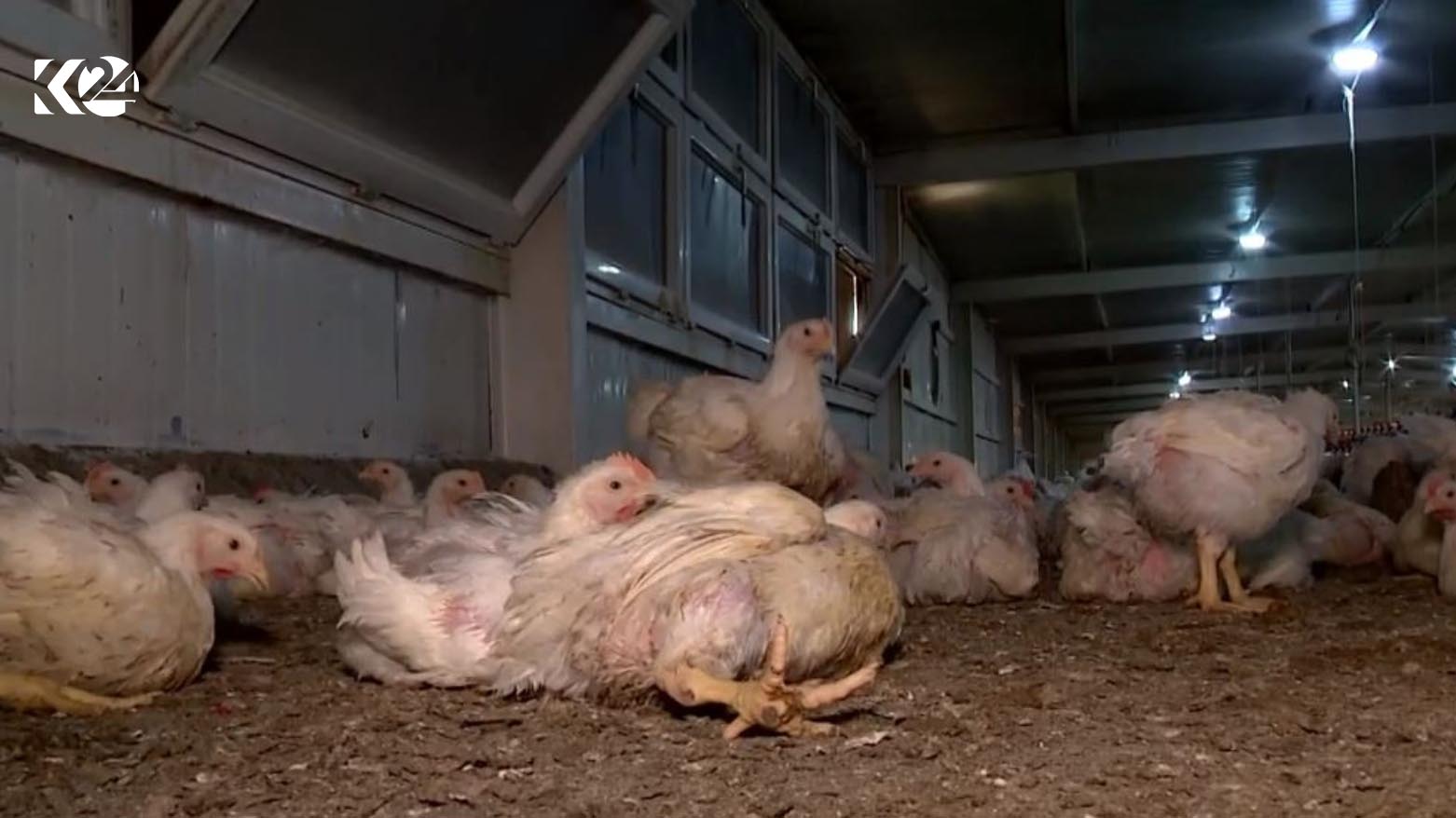Chicken prices increase in Kurdistan Region due to disease and domestic exports

ERBIL (Kurdistan 24) – The price of chicken has increased in recent weeks as a result of exports to other Iraqi provinces, although production has declined due to the spread of several diseases in poultry farms.
For the past several days, poultry farmers have been selling chickens at high prices, but the market failures have disrupted the industry due to a lack of local consumption.
"The price of chicken is not fixed. Some time ago, chicken was not exported to southern Iraq because of the warm weather. Now, chicken is imported to southern Iraq due to the cool weather, so the increase in chicken prices is partly caused by increased demand," said Muhammad Karim, the owner of a poultry farm in Sulaimani.
The director of livestock resources in Sulaimani, Jamal Hussein, told Kurdistan 24: "Disease is one of the reasons why poultry farms are in decline. Newcastle disease and Infectious bronchitis are two very common poultry diseases that cause large numbers of chickens to die. This number will continue to rise."
In the province of Sulaimani, there are 585 poultry meat processing facilities and 800 chicken breeding coops. According to the Directorate of Animal Wealth, an additional 100 unlicensed projects in Sulaimani are responsible for spreading the diseases among the farms.
Newcastle disease is a highly contagious viral disease that affects poultry and other birds. Symptoms of the disease include respiratory failure, paralysis, twisted necks, digestive failure, diarrhea, lack of egg production, and mortality. As the World Organisation for Animal Health (WOAH) states, “When the virus is introduced into a susceptible flock, virtually all the birds will be infected within two to six days.” Although zoonosis, or the spreading of the disease to humans, can occur, its symptoms when manifested in humans are mild.
Similarly, infectious bronchitis (IB) is caused by an avian coronavirus. The symptoms include coughing, sneezing, nasal discharge, respiratory distress, and decreased egg production.
